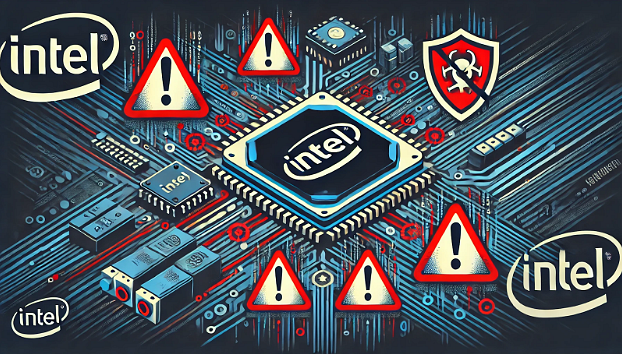Intel Warns of 20+ Vulnerabilities: Urges Firmware Updates

Intel has issued a security advisory detailing over 20 vulnerabilities affecting various processors, and has urged users to update their systems. The vulnerabilities primarily impact Intel’s UEFI firmware, used in processors such as Atom, Xeon, Pentium, Celeron, and Core. These flaws can result in privilege escalation, denial of service, and information disclosure. Intel released the advisory on September 10, 2024, warning that unpatched systems could be exposed to serious threats.
The vulnerabilities vary in scope and impact, but several are rated "high" on the CVSS scale, meaning they pose a substantial threat to systems if not mitigated.
Among the most significant issues are vulnerabilities related to improper input validation and race conditions. One such flaw, CVE-2024-23599, relates to a race condition in Seamless Firmware Updates, potentially enabling denial of service. Another one, CVE-2024-21871, stems from improper input validation, which could allow attackers to elevate privileges. CVE-2024-21781, another critical issue, could enable information disclosure or denial of service.
The vulnerabilities affect a broad range of Intel processors, including the Intel® Xeon® Processor D Family, 10th to 13th Generation Intel® Core™ Processors, and Intel® Pentium® N series processors.
Intel's advisory follows the company’s Coordinated Disclosure practice, where vulnerabilities are revealed only after mitigations or patches are available. Users are urged to contact their system manufacturers to obtain the latest firmware updates.
Intel acknowledged the efforts of independent security researchers, including Phoenix Technologies and Jeremy Boone, who helped identify and report many of these flaws. These contributions have been crucial in maintaining the security of Intel products, which are no stranger to vulnerabilities and security flaws.
While there are no known exploits in the wild, keeping systems updated is critical to preventing future attacks. With cyber threats evolving, addressing these vulnerabilities is essential for both individual users and businesses who are relying on Intel processors.



Please, comment on how to improve this article. Your feedback matters!